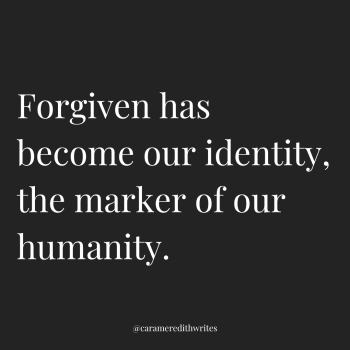If you haven’t been following the news this last week, Alabama’s the talk of the town.
On Tuesday night, with a 25-6 vote, the Senate passed the Alabama Human Life Protection Act, a bill that threatens to criminalize doctors who perform abortions. Even in cases of rape and incest (which Democrats sought to ratify in a failed amendment), the new bill remains and will go into effect in six months’ time.

Now, here’s the deal: although one could argue that this law is a complete political ploy, we have to lay politics aside for a minute here. We have to put our card-carrying blue cards and red cards to the side, and lay our donkeys and our elephants to rest for just a few minutes.
I’ll also be the first to tell you that I do not major in political commentary, even if I try out the phrase “political junkie” every once in awhile at the dinner table. Instead (and as you may have read in my book), I am a listener and a learner, a studier of people and, maybe like you, a person who seeks to not only hear, but truly honor every side of the story – because when we take the time to listen to another person’s story, we can’t help but be changed.
When it comes to this week’s news, I can’t help but wonder how we might better listen to the stories of women – women whose real, fleshy lives have something the rest of us need to hear.
I think of my friend, Shannon, who continues to share her story (of pregnancy when she was twelve years old, after being repeatedly raped by family members) with bravery and courage, over and over again week. In one interview, she centered on the power of story, of humanizing those who will ultimately be affected by this vote: If we’re sitting down from one another with a cup of coffee, would you respond the same way with your voting?
How might listening to Shannon’s story change the trajectory of the bill?
I think of Donna Quinn, a nun who calls herself a feminist and an activist. Featured in Jo Piazza’s 2014 release, If Nuns Ruled the World (which I devoured on a road trip last summer), the Dominican nun is a champion both for a woman’s right to use contraception and for an individual’s decision to end unwanted pregnancies.
In an archived article for the L.A. Times, she said the following:
“As a peacekeeper, my goal is to enable women to enter a reproductive health clinic in dignity and without fear of being physically assaulted. . . . I am very worried that the publicity around my presence will lead to violations of every woman’s right to privacy and expose them to further violence.”
As I listened to the author tell her story, I couldn’t help but smile at the paradox of it all. She loves Jesus something fierce – so much so, she’s given her life to the work of the Church, including the people in her very own neighborhood.
It was in choosing this life – of service to God and service to the humans around her – that she began accompanying those who most needed a little bit of kindness and compassion.
How might listening to the intersection of Donna’s story and the stories of the women she’s championed change the trajectory of the bill?
And perhaps most of all, I think about how Jesus responded to the woman who was caught sleeping with a man who wasn’t her husband. In an effort to try and trap Jesus (and not the woman), the religious scholars wanted him to choose between the law and the person – after all, she was merely a ploy to help them prove right their accusations against the Christ.
But in Luke 8, when Jesus, the woman and the religious scholars gather in the dirt, a stack of stones ready to throw at a moment’s notice, something different happens.
Jesus bent down and wrote with his finger in the dirt. They kept at him, badgering him. He straightened up and said, “The sinless one among you, go first: Throw the stone.” Bending down again, he wrote some more in the dirt.
Instead, Jesus stood on the side of compassion. Although it doesn’t look like he listened to her story right then, I can’t help but think about how his actions communicated that he heard her.
He honored her and respected her and treated her with dignity. And as a result, every single one of them walked away different than when they’d arrived, changed by God’s noticing, listening ways.
So, once again, I ask: How might listening to the stories of Jesus, and of noticing how he responded to the people around him, change the trajectory of the bill?
It takes courage to place our convictions and beliefs to the side and really enter into the art of listening and learning from those who might have something to tell us.
But, my friends, perhaps this is where we start.
—
From the RAINN website: “Anyone affected by sexual assault, whether it happened to you or someone you care about, can find support from online.rainn.org. You can also call the National Sexual Assault Hotline at 800.656.HOPE (4673) to be connected with someone over the phone who can help.” Otherwise, regardless of your political stance, how might listening change the trajectory of this bill?
*Post contains Amazon Affiliate links

















